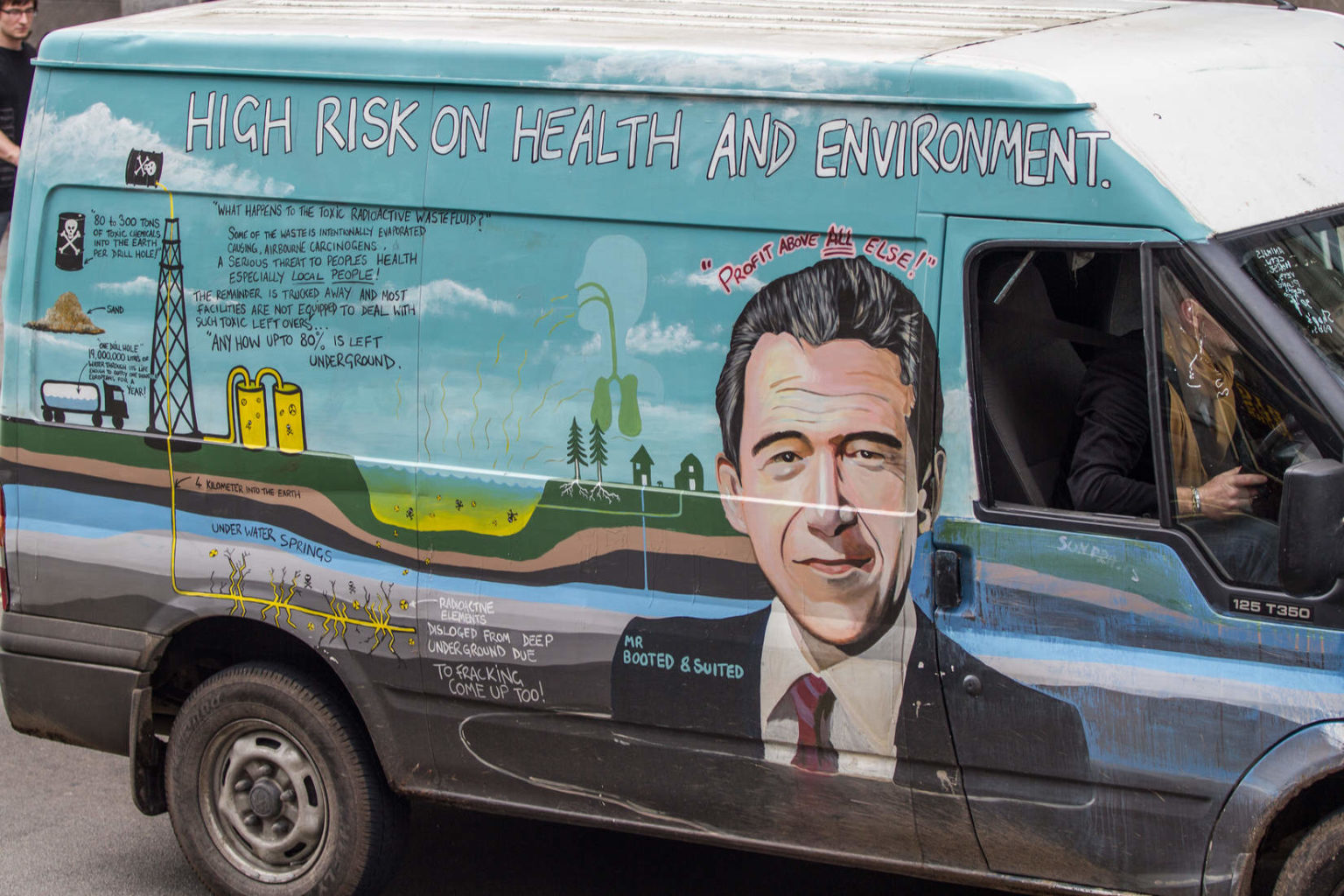A new study published in the journal Science Advances has concluded that babies born within two miles of sites of hydraulic fracturing (“fracking”) for natural gas in Pennsylvania’s Marcellus Shale basin are more likely to have low birth weights.
Researchers from Princeton, the University of Chicago, and UCLA analyzed a decade of Pennsylvania birth data from 2004 to 2013 — reviewing 1.1 million birth certificates — and concluded that those babies born to mothers living in close proximity to fracking sites are more likely to weigh under 5.5 pounds at birth. Specifically, the study concluded that babies born within a kilometer (just over half a mile) of fracking sites are 25 percent more at risk of low birth weights, which comes with other health effects.
“While we know pollution from hydraulic fracturing impacts our health, we do not yet know where that pollution is coming from — from the air or water, from chemicals onsite, or an increase in traffic,” said UCLA researcher Katherine Meckel in a press release.
Why a study of the prenatal population, say, as opposed to other members of society? Because, as the researchers explain, it offers a localized and controlled set of data, both of which are key to establishing data correlations and trends.
“First, there is increasing evidence that the fetus is vulnerable to a range of maternal pollution exposures. Second, because the fetus is in utero for at most 9 months, it is possible to pinpoint the timing of potential exposure,” write the researchers. “This is not the case with other possible health effects, such as cancer, that develop over long periods of time. Moreover, birth data are available with precise information on mothers’ residential locations, permitting researchers to examine the effects of proximity to fracturing sites on the health of newborns.”
The major caveat of the study is that beyond distances of roughly two miles, health impacts of this sort become negligible. That led the researchers to conclude that health impacts of fracking for babies in utero are largely a local affair.
“As local and state policymakers decide whether to allow hydraulic fracturing in their communities, it is crucial that they carefully examine the costs and benefits, including the potential impacts from pollution,” said study co-author Michael Greenstone, an economics professor and director of the Energy Policy Institute at the University of Chicago, in a press release. “This study provides the strongest large-scale evidence of a link between the pollution that stems from hydraulic fracturing activities and our health, specifically the health of babies.”
The study points to other research which has concluded that low birth weight can lead to, at worst, infant mortality, but also attention deficit hyperactivity disorder (ADHD), asthma, lower test scores, lower schooling attainment, and lower earnings, among other things.
Locations of births and fractured wells in Pennsylvania. Credit: Currie, Greenstone, Meckel, Sci. Adv. 2017;3: e1603021
What the study does not do, however, is pinpoint what aspect of the drilling procedure is actually causing these health impacts. Lead author Janet Currie, a professor of economics and public affairs at Princeton University, told InsideClimate News that a necessary follow-up study would include air monitoring at fracking sites.
The study comes years after a battle over setbacks in Denton, Texas, a city in which citizens pushed the city council to place fracking wells at least 1,200 feet, or less than a quarter mile away, from homes. After the council refused to do so and passed a compromise ordinance instead, the city’s citizens voted successfully to ban the process in the 2014 midterm elections. The ban was quickly challenged in court by the oil and gas industry and the Texas General Land Office and then reversed by the Texas Legislature.
The oil and gas industry, particularly industry front group Energy in Depth (EID), has pointed to the push for drilling setbacks as a “de facto ban” of fracking. But Currie told InsideClimate News that fracking setbacks may be a key public health policy measure pursued in the years ahead.
Food and Water Watch, a proponent of a fracking ban, did in fact point to the study’s findings to argue for a fracking ban.
“This study adds to the existing scientific literature that tells us there are serious public health consequences linked to fracking,” Wenonah Hauter, Food and Water Watch’s Executive Director, said in a statement. “Political leaders who wish to protect the health and safety of residents must make a commitment to end fracking immediately.”
Main image: A van with anti-fracking information at Trafalgar Square in London. Credit: Tony Webster, CC BY 2.0
Subscribe to our newsletter
Stay up to date with DeSmog news and alerts








